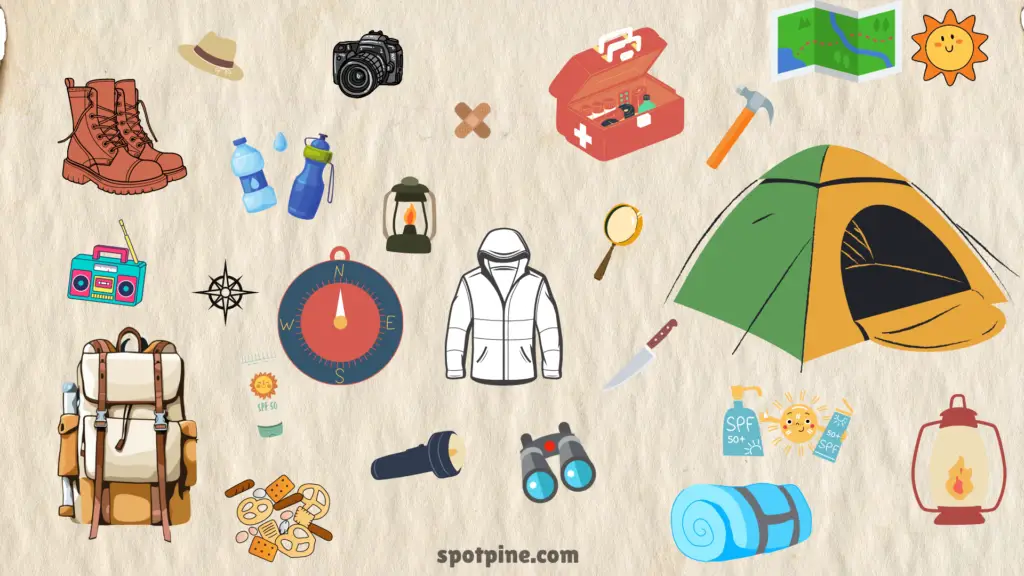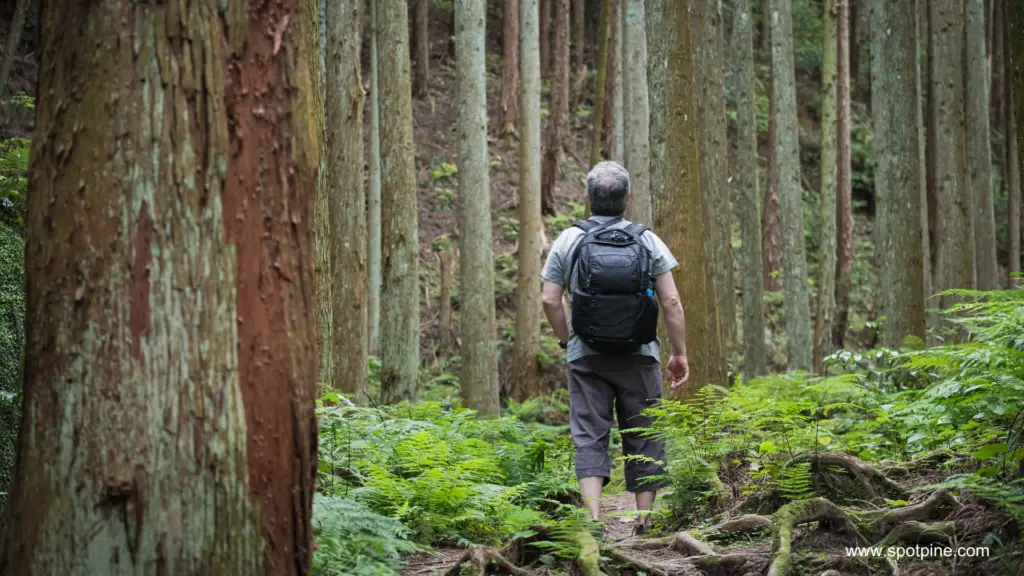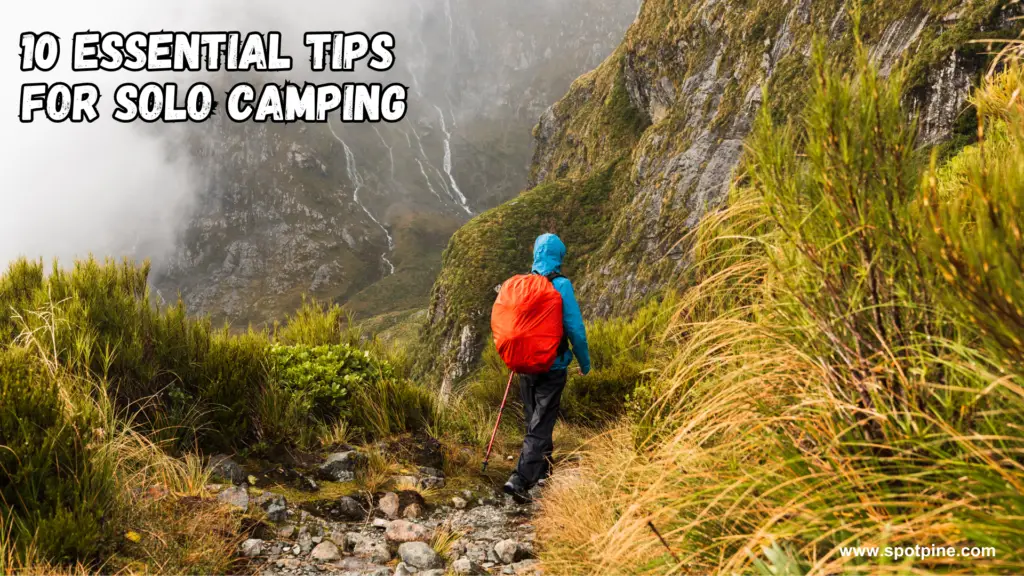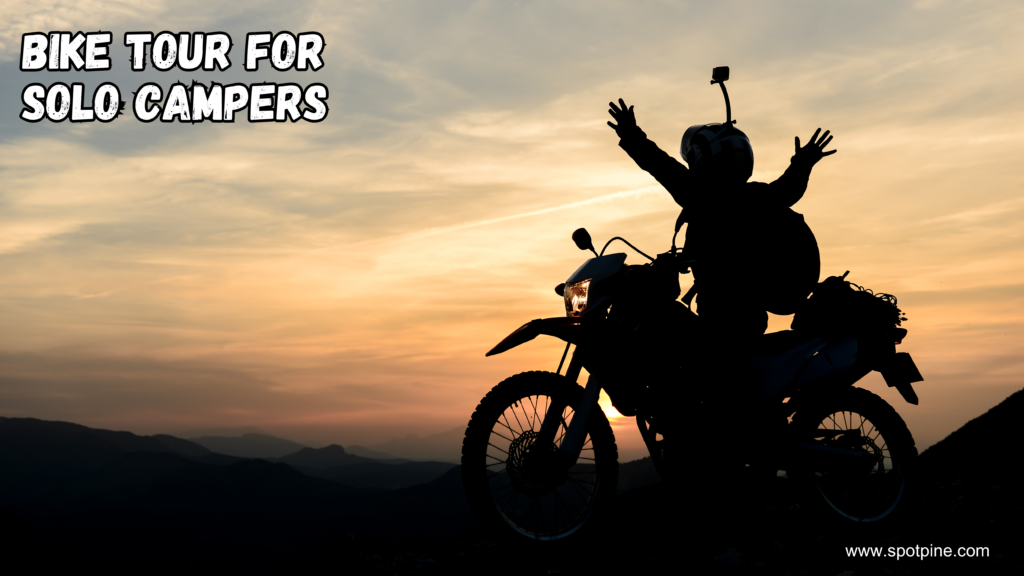To stay safe while solo camping, always tell someone where you’re going and when you expect to return. Pack plenty of supplies and equipment for emergencies.
Solo camping is an exhilarating adventure, but it can be dangerous if you’re not prepared. Whether you’re an experienced camper or a beginner, it’s essential to take safety precautions while camping alone. From packing the right gear to taking care of your food and water, there are several things you can do to stay safe in the great outdoors.
We’ll cover everything you need to know about how to stay safe while solo camping. So let’s dive in and discover how to enjoy a safe, thrilling solo camping trip.
Why Solo Camping Is Worth The Risk
Solo camping may seem risky, but with proper preparation, it can be a rewarding experience. Staying safe while solo camping involves things like choosing a safe location, bringing appropriate gear, and being aware of your surroundings. So, go ahead and embrace the adventurous side of life!
Solo camping can be an incredible opportunity for personal growth. Not only does it give you a chance to escape from the hustle and bustle of city life, but it can also help you develop important survival skills. Being alone in the wilderness can be daunting, but it can also lead to a sense of self-reliance and independence. Of course, there are risks involved with solo camping, especially for those who are inexperienced or unprepared. It is important to understand the potential dangers and take steps to mitigate them. This may involve learning basic wilderness survival skills, investing in quality gear, and educating yourself on local wildlife and weather patterns. Ultimately, the decision to solo camp is a personal one that should not be taken lightly. But for those who are prepared, the benefits can be well worth the risks.
| Benefits of Solo Camping |
| Opportunity for Personal Growth |
| Escape from City Life |
| Develop Important Survival Skills |
| Sense of Self-Reliance and Independence |
It is important to note that solo camping is not for everyone. It requires a certain level of physical and mental stamina, as well as a willingness to embrace the unknown. It is also important to respect the natural environment and to leave no trace behind when you depart. In short, solo camping can be a fantastic way to discover yourself and the great outdoors. With the right preparation and mindset, anyone can enjoy the benefits of this unique experience.
Essential Gear For Safe Solo Camping
Camping solo can be an exciting and adventurous experience, but it can also come with its own set of challenges that require adequate preparation. As you gear up for your next solo camping trip, it’s important to pack the necessary essentials to ensure a safe and pleasant experience. Here are some of the essential items that every solo camper should include in their gear list:

Choosing The Right Tent
Your tent will be your home away from home, so it’s important to choose one that meets your needs. Look for a tent that is sturdy, waterproof, and easy to set up. Consider the size and weight as well, depending on your mode of transportation and the terrain you will be camping on.
Sleeping Bag And Sleeping Pad
A good night’s rest is crucial for an enjoyable camping experience. Choose a sleeping bag that is appropriate for the weather conditions and that provides enough space and insulation for your body size and sleeping habits. A sleeping pad will also help provide comfort and insulation from the cold ground.
Lighting And Navigation Tools
Proper lighting can help you navigate around your campsite at night and also provide a sense of security. A headlamp or flashlight, along with extra batteries, is a must-have. Navigation tools such as a compass or GPS device can help you find your way and avoid getting lost.
Cooking Supplies And Food
Food and cooking supplies are also essential items to pack. Consider bringing a portable stove, cookware, utensils, and a cooler to store perishables. Choose easy-to-prepare meals that provide enough energy and nutrients for your camping activities.
First Aid And Emergency Equipment
Safety should always come first when camping solo. Pack a first aid kit with basic supplies such as bandages, antiseptic, and pain relievers. Other emergency equipment to consider includes a whistle, a fire starter, and a survival blanket.
Picking A Safe Campsite
Picking a Safe Campsite
When solo camping, it’s essential to pick a safe campsite to ensure a comfortable and secure camping experience. Here are some key tips to help you:
Researching the Area
- Before heading out, research the area using guidebooks, park websites, or local information centers to identify potential hazards and dangers.
- Check the weather forecast to avoid natural disasters like sudden storms.
- Read online reviews or ask other campers about their experiences in the area.
Avoiding Hazardous Sites
- Avoid camping near cliffs, unstable terrain, or steep slopes.
- Stay away from areas prone to flash floods and high fire risk zones.
- Camping near water sources may be supplies but also attracts bears, insects, and other wild animals, so be cautious.
Setting Up Camp for Safety and Comfort
- Choose a flat and level campsite to avoid any unexpected rolling in your sleep.
- Clear the area of any debris or sharp objects that could damage your gear or cause injury.
- Set up your tent away from the campfire to avoid possible fire hazards, prepare your food away from your tent to avoid attracting wild animals.
By following these tips while picking a campsite, you can stay safe during your solo camping adventure and fully enjoy your trip.
Staying Safe Around Wildlife
When camping solo, it’s important to stay safe around wildlife. To avoid any danger, keep food and trash stored properly, familiarize yourself with local animals and their behaviors, make noise to avoid surprising them, and never approach or feed them.
Always be aware of your surroundings and stay prepared for any encounters.
Understanding Animal Behavior: Before solo camping, research the animals in the area. Learn their behavior and habits. For example, if you’re camping in bear country, hang your food in a bear-safe container or bear bag.
Protecting Your Food and Supplies: Keep your food and any fragrant items in airtight containers. Store them away from your sleeping area. Remember to dispose of trash properly. Also, don’t bring perishable foods that can spoil quickly.
Preventing Encounters with Wildlife: Make noise while hiking, so animals know you’re coming and will avoid you. Carry bear spray, a whistle, and a headlamp. Never approach wildlife. Always keep a safe distance and respect their space. It’s their home, and you’re the visitor.

Planning Your Solo Camping Trip
Planning a solo camping trip requires a lot of preparation. Choosing the right time of year is crucial as some seasons might not be ideal for camping due to weather or wildlife activity. It’s important to notify others of your plans before embarking on your journey. Let someone know where you will be, when you plan to arrive and when you plan to leave. Preparing for inclement weather is essential. Bring proper gear to keep you warm and dry and check the forecast before leaving. Lastly, it’s crucial to stay connected to the outside world, especially in case of an emergency. Bring a cell phone, a charger, and a map or a GPS device. Follow these tips, and you’ll be well on your way to a successful and safe solo camping trip.
Surviving The Unexpected
When solo camping, it’s important to be prepared for anything that may come your way. Here are a few tips to keep you safe in case of unexpected situations:
Knowing What To Do In A Medical Emergency
Always carry a first aid kit with you. Familiarize yourself with basic first aid procedures and know how to recognize and treat common injuries. If you have any pre-existing medical conditions, make sure to bring all necessary medications with you.
Reacting To Inclement Weather
Check the weather forecast before leaving and pack appropriate clothing and gear for the conditions. If you get caught in a storm, find shelter and wait it out. If you’re at risk of hypothermia, build a fire and warm yourself up.
Navigating The Wilderness Without Help
Before heading out, study maps and plan your route. Bring a compass and know how to use it. Mark your trail as you go so you can find your way back. If lost, stay calm and retrace your steps.
Getting Help If Needed
Carry a whistle and a signaling device such as a mirror or flare. These can help you get the attention of potential rescuers. If you have a cell phone, keep it fully charged and bring a backup battery or solar charger.

Managing Your Emotional Well-being
When camping solo, managing your emotional well-being is critical. Here are a few tips:
- Facing Fear and Anxiety: It is natural to feel a little scared or anxious when you are camping alone. Be prepared for these emotions and try to stay calm. Remember that you are in control of the situation, and take deep breaths to calm yourself down.
- Enjoying Solitude and Adventure: Solo camping offers unique opportunities to enjoy solitude and adventure. Make the most of your time by engaging in activities you enjoy and spending time with nature. Consider bringing a good book or journal to keep yourself occupied.
- Making the Most of Your Solo Camping Trip: To make the most of your solo camping trip, be well-prepared and organized. Make a checklist of all the camping gear you need, and plan your meals and activities ahead of time. Remember to bring a map and compass or GPS device to stay on track during your trip.
Solo Camping For Women
Despite being thrilling, solo camping isn’t easy, especially for women. Women campers may face multiple challenges on the way, so it’s necessary to know the safety tips. Before leaving for a solo camping trip, be aware of the following obstacles:
- Attacks by animals or strangers: Not all have safe intentions. It’s important to know how to defend oneself against any animal or person you encounter.
- Getting lost: It’s always essential to study the campsite map before venturing out and advise the park ranger of your whereabouts.
- Medical emergencies: Be prepared for minor injuries with a small first aid kit. In case of a serious medical emergency, it should be informed to the local authorities.
When venturing out for solo camping, it’s important to know the camping basics such as pitching a tent, starting a fire etc. Always keep a backup plan and carry appropriate items with you including a map, compass, flashlight, extra food and water.

Conclusion
Being an adventurous solo traveler is exciting, but it’s essential to remain safe during solo camping trips. Follow these tips to ensure your safety while enjoying the great outdoors. Remember to always let someone know where you are going and when you plan to return.
Carry a first aid kit, a charged phone, and emergency supplies. Be mindful of your surroundings, trust your intuition, and stay safe! With a little preparation and caution, you can fully enjoy your solo camping trip with complete peace of mind.



